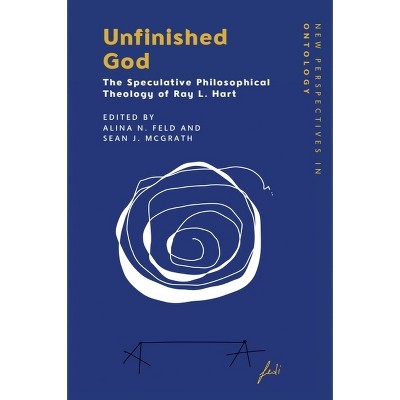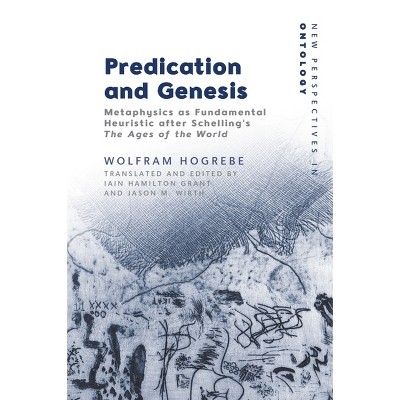The Philosophical Foundations of the Late Schelling - (New Perspectives in Ontology) by Sean J McGrath (Paperback)

About this item
Highlights
- This is the first major effort to systematically organise and evaluate Schelling's arguments for a Philosophy of Revelation and to demonstrate their importance for contemporary debates in speculative realism, new realism and post-secularism.
- About the Author: Sean J. McGrath is Professor of Philosophy and Theology at Memorial University of Newfoundland and a Member of the College of the Royal Society of Canada.
- 296 Pages
- Philosophy, Religious
- Series Name: New Perspectives in Ontology
Description
About the Book
This is the first major effort to systematically organise and evaluate Schelling's arguments for a Philosophy of Revelation and to demonstrate their importance for contemporary debates in speculative realism, new realism and post-secularism.Book Synopsis
This is the first major effort to systematically organise and evaluate Schelling's arguments for a Philosophy of Revelation and to demonstrate their importance for contemporary debates in speculative realism, new realism and post-secularism. Schelling's decisionism has long been recognised as the historical root of European existentialism, but has never been properly explained as a philosophical strategy. According to McGrath, Schelling's turn to the real is neither fideistic nor absurdist, but the consequence of the free decision of the philosopher who has soberly assessed the results of logic, nature-philosophy and epistemology.From the Back Cover
An uncovering of the postsecular relevance of the late Schelling's Philosophy of Revelation Schelling's positive philosophy has long been recognised as the historical root of Marxism, existentialism and other central trends in continental philosophy, but its main argument has never been fully elaborated as a tenable philosophical strategy for thinking Christianity forward into its future. According to McGrath, Schelling's late turn to speculative theological realism, the positive, is neither fideistic nor arbitrary, but rather the consequence of the free decision of the philosopher who has soberly assessed the results of logic, nature-philosophy and historical-critical and systematic theology. This is a pioneering effort to reconstruct Schelling's argument for the truth of the doctrine of the Trinity and to assess its philosophical and theological validity. Sean J. McGrath is Professor of Philosophy and Theology at Memorial University of Newfoundland.Review Quotes
... strikingly original and without peer in the English literature.The discussion of Hegel (and Schelling's "non-dialectical personalism") stands to be among the very best that I have read.--Jason Wirth, Seattle University
Who has not wished that dogmatic Christians would read Nietzsche and discover how little Christian they are? Sean McGrath, animated by the hope that we might now discover something of equal importance about ourselves, turns the table by presenting in bold terms Schelling's vision of an idol-free and secularized Christianity.--Joseph P. Lawrence, Research alumni of the Eberhard Karls University in Tübingen
About the Author
Sean J. McGrath is Professor of Philosophy and Theology at Memorial University of Newfoundland and a Member of the College of the Royal Society of Canada. He is the author of The Philosophical Foundations of the Late Schelling: The Turn to the Positive (EUP, 2021), Thinking Nature. An Essay in Negative Ecology (EUP, 2019), The Dark Ground of Spirit: Schelling and the Unconscious(Routledge, 2012), Heidegger. A Very Critical Introduction (William B. Eerdmans, 2008) and The Early Heidegger and Medieval Philosophy (Catholic University of America Press, 2006). He is editor of The Palgrave Macmillan Handbook to Schelling (Palgrave-Macmillan, 2020), Rethinking German Idealism (Palgrave-Macmillan, 2016) and A Companion to Heidegger's Phenomenology of Religious Life (Rodopi, 2010).











